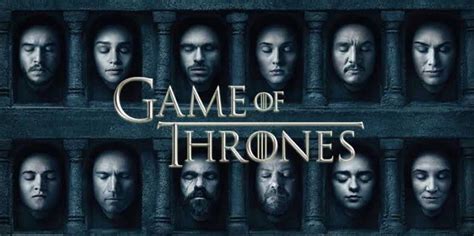War of Thrones Explained

The War of the Thrones, more commonly known as the War of the Five Kings, is a pivotal event in the fictional world of Westeros, as depicted in George R. R. Martin's A Song of Ice and Fire series and its television adaptation, Game of Thrones. This conflict encompasses a complex web of alliances, betrayals, and power struggles among the noble families of the Seven Kingdoms, each vying for control of the Iron Throne. The war is sparked by the death of King Robert Baratheon, which sets off a chain reaction of events as different factions attempt to claim the throne.
Background to the War

The seeds of the War of the Five Kings are sown during the reign of King Robert Baratheon, who, after overthrowing the Targaryen dynasty, fails to provide a clear line of succession. His death without a clear heir leads to a succession crisis. The war involves several key players, including the Starks, Lannisters, Baratheons, Tyrells, and Greyjoys, each with their own claim to the throne or motivations for power. The conflict is further complicated by the role of external forces, such as the Night’s Watch and the Free Folk beyond the Wall, and the looming threat of the White Walkers.
The Main Factions
The main factions involved in the War of the Five Kings include: - House Stark, led by Robb Stark, who seeks to avenge his father’s death and protect the North. - House Lannister, with Cersei Lannister acting as regent for her son, Joffrey, who sits on the Iron Throne. - House Baratheon, divided between the claims of Joffrey Baratheon (backed by the Lannisters) and those of his uncles, Stannis and Renly Baratheon, who both seek the throne. - House Tyrell, who initially support Renly Baratheon before switching their allegiance to the Lannisters after Renly’s death. - House Greyjoy, with Balon Greyjoy seeking independence for the Iron Islands.
| House | Motivation |
|---|---|
| Stark | Protection of the North and avenging Ned Stark's death |
| Lannister | Maintaining power and control over the Iron Throne |
| Baratheon | Claiming the Iron Throne, with divisions within the house |
| Tyrell | Gaining power and influence through strategic alliances |
| Greyjoy | Achieving independence for the Iron Islands |

Key Points
- The War of the Five Kings is a direct result of the succession crisis following King Robert Baratheon's death.
- Multiple houses, including the Starks, Lannisters, Baratheons, Tyrells, and Greyjoys, are involved, each with their own agendas.
- The conflict is marked by significant battles, betrayals, and the rise and fall of various leaders.
- External factors, such as the Night's Watch and the threat of the White Walkers, play a crucial role in the broader narrative of Westeros.
- The war ultimately leads to a significant shift in the power dynamics of the Seven Kingdoms, setting the stage for the Great War against the Night King.
Major Events and Turning Points

The War of the Five Kings includes several pivotal events, such as the Battle of the Blackwater Bay, where Stannis Baratheon’s forces are defeated by a combined force of Lannisters and Tyrells, and the Red Wedding, where the Starks are betrayed and massacred by the Freys and Boltons. These events, along with the rise of Daenerys Targaryen in Essos and her eventual return to Westeros, significantly impact the war’s trajectory and its aftermath.
Consequences and Legacy
The War of the Five Kings has profound consequences for the characters and the world of Westeros. It leads to a significant loss of life, the downfall of several major houses, and a drastic shift in the political landscape. The war also serves as a precursor to the Great War, as the surviving characters must band together to face the existential threat of the Night King and his army of the dead.
The expertise in understanding the War of the Five Kings lies in grasping the complex interplay of characters' motivations, the historical context of Westeros, and the thematic elements that drive the plot forward. It requires a deep dive into the world of Game of Thrones, analyzing the actions and decisions of its characters within the context of their world's politics, culture, and mythology.
What was the primary cause of the War of the Five Kings?
+The primary cause was the succession crisis following King Robert Baratheon’s death, which led to a conflict over who should inherit the Iron Throne.
Which houses were primarily involved in the war?
+The main houses involved were the Starks, Lannisters, Baratheons, Tyrells, and Greyjoys, each with their own claims or motivations.
What was the outcome of the war?
+The war resulted in significant changes to the power dynamics of the Seven Kingdoms, leading to the rise of new leaders and setting the stage for the Great War against the Night King.



